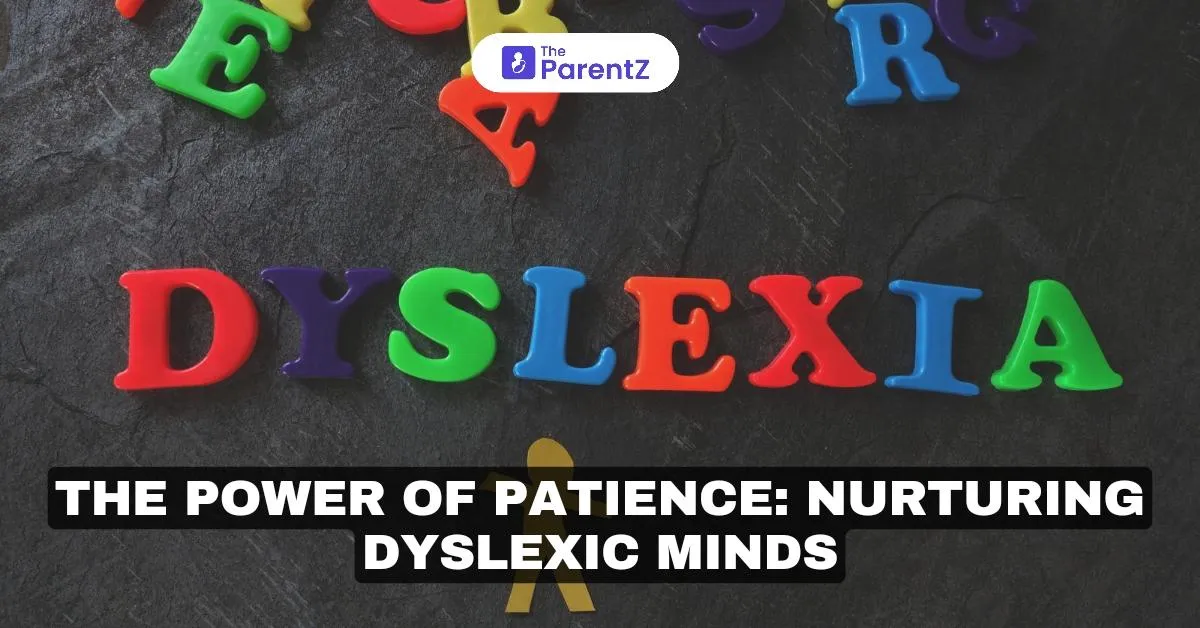Parenting a child with dyslexia requires an extraordinary amount of patience, understanding, and resilience. As we explore this important topic, let's understand how patience becomes not just a virtue but a necessary tool in helping our children navigate their learning differences and build confidence in their abilities.
Understanding the Dyslexic Mind
Before we understand the role of patience, it's important to understand that dyslexia is not a reflection of intelligence or effort. Research shows that dyslexic individuals often have average to above-average intelligence and can be incredibly creative and innovative thinkers. Their brains are simply wired differently, processing information in unique ways that can make traditional reading and writing methods challenging.
Children with dyslexia frequently experience feelings of inadequacy or frustration due to their difficulties with reading and writing. They may struggle to keep up with their peers in academic settings, leading to a sense of isolation. As parents, recognizing these emotional impacts is essential for providing the support your child needs.
The Role of Patience in Parenting
- Understanding the Learning Process: Children with dyslexia often require more time to grasp reading concepts compared to their peers. This can be frustrating both for them and for parents who may not fully understand the nature of dyslexia. Patience allows you to appreciate that learning is not a linear process; it involves setbacks and breakthroughs. By adopting a patient mindset, you can create a more supportive atmosphere where your child feels safe exploring and making mistakes.
- Building Confidence: A child’s self-esteem can be significantly affected by their struggles with reading. When you exhibit patience during learning moments, it sends a powerful message: “It’s okay to take your time.” This reassurance helps build confidence in children, encouraging them to persist even when faced with challenges. Celebrating small victories—like mastering a difficult word or completing a reading assignment—can reinforce this positive cycle.
- Modeling Resilience: Children learn by observing their parents’ behaviors. When you demonstrate patience in the face of difficulty, you model resilience for your children. This teaches kids that challenges are natural, and that perseverance is key to overcoming obstacles. By showing them how to approach problems calmly and thoughtfully, you instill valuable life skills that extend beyond academics.
- Enhancing Communication: Effective communication is essential in any parent-child relationship, but it becomes even more necessary when navigating dyslexia. Patience fosters open dialogue between parents and children, allowing for discussions about feelings, frustrations, and successes. This communication helps you understand your child’s perspective and emotional state, enabling them to provide better support tailored to their needs.
Practical Ways to Practice Patience
Create a Supportive Environment
- Establish a quiet, organized study space
- Break tasks into manageable chunks
- Allow extra time for completion
- Provide necessary breaks and movement opportunities
- Use assistive technologies when appropriate
Maintain Perspective
Remember that:
- Every child's journey is different
- Progress may be slow but is usually steady
- Today's struggles don't define tomorrow's success
- Your child's worth isn't measured by academic performance
A Message of Hope
Your patience today is building the foundation for your child's tomorrow. While the journey may seem long and challenging, remember that:
- Every child can learn and succeed
- Different learning paths are equally valid
- Patience creates a safe space for growth
- Your support makes a profound difference
- The challenges of today build strength for tomorrow
As you continue this journey with your child, remember that patience isn't just about waiting—it's about maintaining a positive, supportive presence while your child develops at their own pace. Your patient guidance helps them build not just academic skills, but also the confidence and resilience they'll need throughout their lives.
Conclusion
By approaching each day with renewed patience and understanding, you're not just helping your child navigate their dyslexia—you're teaching them valuable life lessons about perseverance, self-acceptance, and the power of consistent effort. These lessons will serve them well long after their school years have ended.





Be the first one to comment on this story.